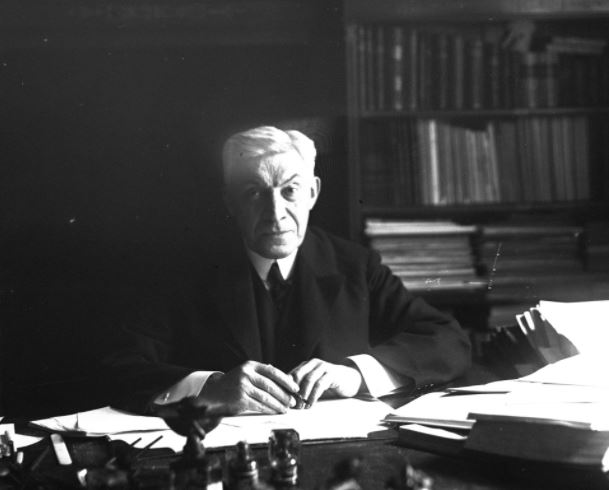Władysław Natanson was fascinated by the sciences from an early age. Already at the age of sixteen, he presented a comprehensive paper “Chemical value and its variation” at a meeting of the Society of the Sciences in Paris. “Chemical value and its variation”. From then on, he published up to a dozen scientific papers a year in many journals in Poland and abroad.
Władysław Natanson was born on 18 June 1864 in Warsaw into a distinguished family of bankers and industrialists of Jewish origin. His father Ludwik was not only a well-known doctor, but also a social activist who served as president of the Jewish religious community in Warsaw for 25 years. Thanks to Ludwik Natanson’s efforts, a Jewish hospital and the Great Synagogue on Tłomackie Street were built. He also initiated the creation of the Central Judaic Library and the construction of a new Jewish community building.
After graduating from high school, Władysław began studying physics and mathematics in St. Petersburg, after which he continued his studies in Cambridge and Glasgow and in Dorpat (now Tartu, Estonia). He obtained successively a master’s degree and a doctorate in physics. After presenting his postPhD thesis in 1891, Natanson became permanently affiliated with the Jagiellonian University, where he held further important posts. In 1922, he became the Rector of the Jagiellonian University and purchased three extensive building plots from the city authorities of Kraków, including for the new building of the Jagiellonian Library.
Natanson’s scientific output is enormous: about 240 works, 82 of which are purely scientific. The researcher dealt with many issues, including thermodynamics, hydrodynamics of viscous fluids and the theory of diffusion phenomena, wave mechanics, geometrical optics, atomic optics, quantum mechanics and the theory of elementary particles. He investigated the passage of light through gases. In addition, he left behind dozens of literary works.
He was convinced of the need to combine achievements from different scientific fields and to unite science with everyday life. Natanson was fascinated by literature, history and philosophy. He wrote essays on the history of scientific philosophy and the lives of its creators. He also dealt with Shakespeare and was fascinated by Alexandrian and Arabic science. He promoted the friendship between humanists and naturalists and defended the humanist character of the whole Jagiellonian University. His friends included Albert Einstein, Max Planck, Henryk Sienkiewicz, Jacek Malczewski and many other scientists and artists. He died in Krakow on 26 February 1937.





